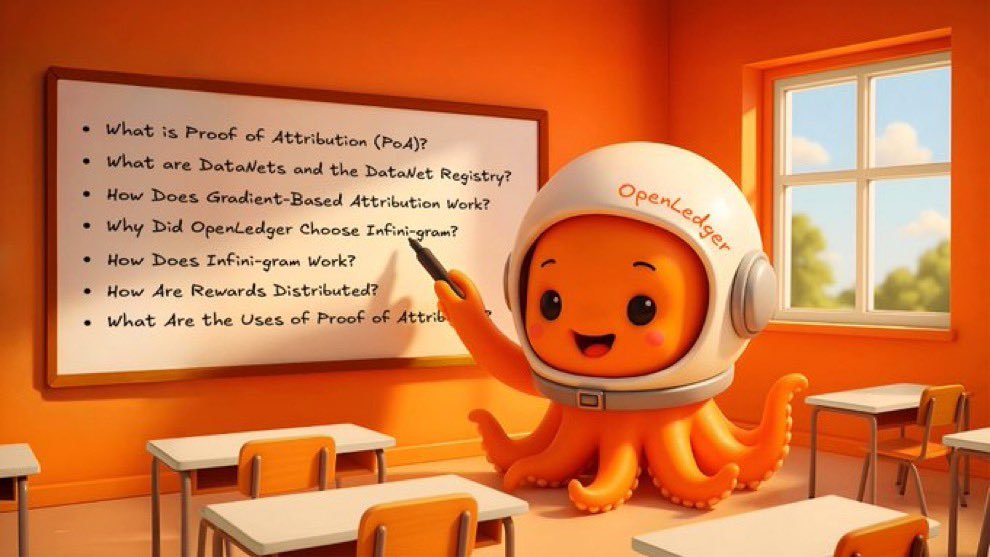Newton once said, "If I have seen further, it is by standing on the shoulders of giants." In today's AI field, aren't these data contributors, model developers, and fine-tuning engineers the "giants" supporting the entire industry? But the reality is that many times, once their work is done, their names and rewards vanish, the models are commercialized, the money might end up in the platform's pocket, and the data providers may not even receive a simple thank you.
But OpenLedger @OpenledgerHQ is here to change all that.
Its logic is not complicated, but it hits the pain point: to create a "public ledger" for every AI model.
The on-chain historical record is essentially a fully traceable file for the model. Who initially built the framework, who added which batch of data, who fine-tuned which parameters, all of it is recorded on the chain, and it can't be altered. This puts "who did what" out in the open, no longer a muddled account.
Then there's permission transparency. Many AI models' usage licenses are like ancient texts, users are confused when using them, developers are confused when infringed upon, and there are too many disputes. But here, the licensing terms are clearly stated, what can be used, what cannot, how to use it, and how much to pay, all visible at a glance. For developers, they don't have to worry every day about their results being misused; for users, they don't have to fear stepping into pitfalls.
The most crucial part is the revenue sharing. It was often said "distribute according to contribution," but "contribution" is too vague. OpenLedger @OpenledgerHQ calculates payments based on actual contributions; if the data you provided is called upon 100 times, you get a share for those 100 times. If your optimized model is commercialized, you get a share every time it runs. It's like opening a store, you invest money and hold shares, and you can take a proportional share of the profits every time, with the accounts open, no one can cheat anyone.
As for the much-complained "black box AI," it basically doesn't exist here. The origins and decision logic of the model can be clearly traced, developers don't have to hide anything, and users can use it with confidence, as they can even trace its "ancestry."
Honestly, for the AI industry to move forward, it can't rely solely on a few big companies. It needs to motivate those who are truly doing the work, so data contributors are willing to share quality data, and developers dare to invest time in refining models, only then can the entire ecosystem thrive. OpenLedger's approach essentially provides these "giants" with a magnifying glass, allowing their value to be seen, respected, and realized, which is how the artificial intelligence ecosystem should look.
Show original
344
21
The content on this page is provided by third parties. Unless otherwise stated, OKX TR is not the author of the cited article(s) and does not claim any copyright in the materials. The content is provided for informational purposes only and does not represent the views of OKX TR. It is not intended to be an endorsement of any kind and should not be considered investment advice or a solicitation to buy or sell digital assets. To the extent generative AI is utilized to provide summaries or other information, such AI generated content may be inaccurate or inconsistent. Please read the linked article for more details and information. OKX TR is not responsible for content hosted on third party sites. Digital asset holdings, including stablecoins and NFTs, involve a high degree of risk and can fluctuate greatly. You should carefully consider whether trading or holding digital assets is suitable for you in light of your financial condition.

